During the War On Screen international film festival in Châlons en Champagne last month Gaëlle Fournier met Marc Lepetit, producer of the German TV show Berlin 56.
You are the producer of Berlin 56. Why this title?
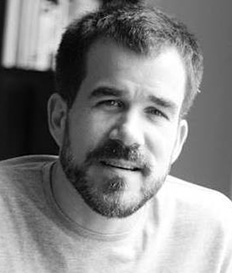
Marc Lepetit
Originally the show was called Ku’Damm 56, but there is a very simple reason why it’s called Berlin 56. It’s called so because no one around the world really knows what Ku’Damm is. If you’re telling someone in Berlin, everyone knows that it is a street in Berlin, but for non-Berliners, it’s another story. That’s why we decided to call it Berlin 56 as it’s more recognizable. Concerning 56, it refers to the year 1956. This is a very unromantic reason for the name. We were looking for a time period that hasn’t been told in television or movies so that people still have something to explore. This post-war timeframe is fascinating. Industry was rising, people were working their way out of the war, the last prisoners of war were coming back, we were close to the fact that Germany was divided, so it’s still a very energetic theme, but few people in Germany know much about it.
What is the message behind Berlin 56 and notably behind its characters ?
The biggest thing behind all these characters is a similar rise against the system and especially from females who, back in time, were pretty much working as co-functioning with the man. There was nothing for women besides being a wife, besides giving birth, raising the kids, and being there for their husbands. This was their purpose. Men came back from war and wanted to control their wives. So the main message behind Berlin 56 is the following: we have a family that kicks off the same mood, but then everybody decides to find his own new way, influenced by the young Monika. This story is the awakening of three kids, who learn how relationships work, how sexuality works, or doesn’t work and what it means to no longer be a child but a woman. And they all have very different experiences: true love, confused love, and “omg I love him but he’s gay” (spoiler: that’s episode 2). It’s all about rising up, about getting out of the role of being solely a wife and thus about emancipation: social, political and sexual emancipation.
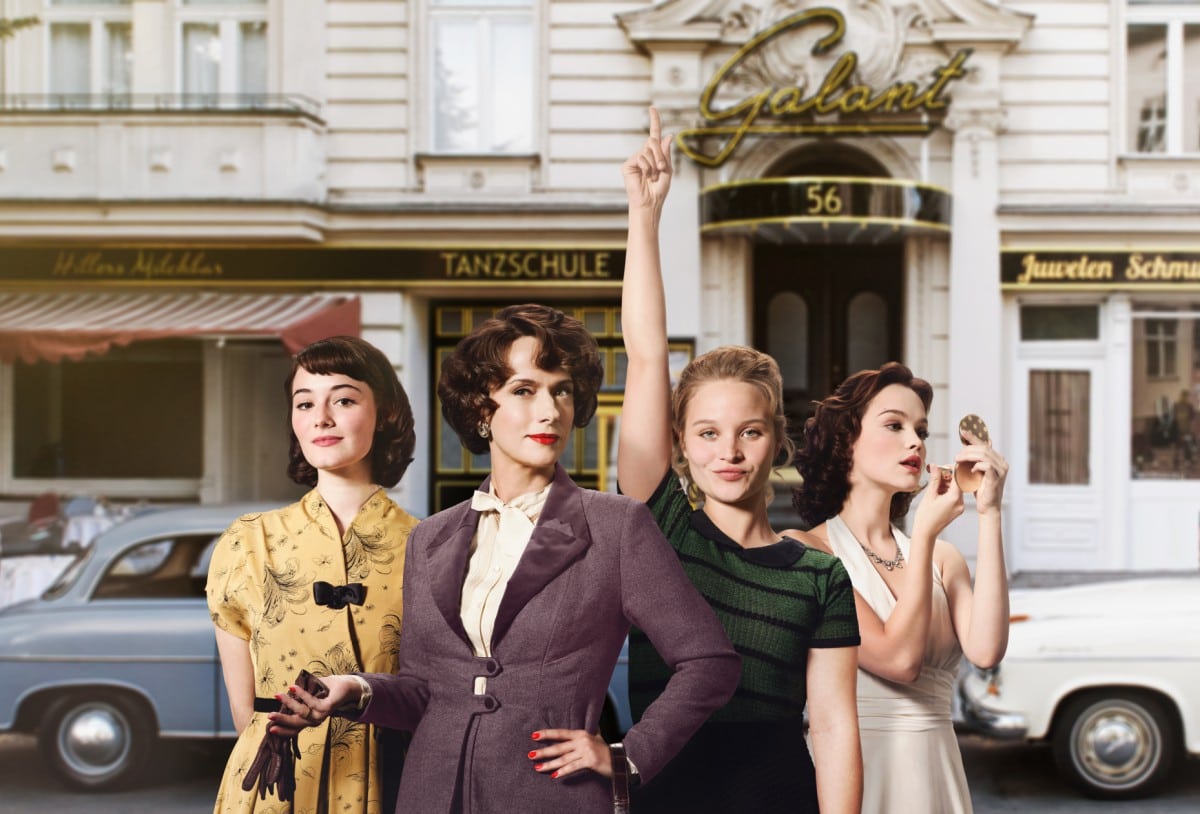
Characters of Berlin 56.
It’s all about rising up, about getting out of the role of being solely a wife and thus about emancipation: social, political and sexual emancipation.
What do Monika and Caterina represent?
Monika is the face of the new generation. It was the first generation that said “no we’re not going to accept that men are just telling us what we need to do, where to go, what to think.” On the contrary, Katarina represents the other side of the story, the old Germany. If you talk to the generation and ask them what happened in 1939 and 1945, some of them will say “honestly I forgot” because they’re ashamed. So Caterina is exactly like that, trying to build up something new, trying to avoid to think about the old stuff, thinking about it in a romantic way. Indeed, if you look at the series, you will see that Caterina is still very proud of the fact that she won a dancing championship in 1933, and she got the medal of honour from that regime. So she has a very romantic view of the Nazi times. Trying to avoid the negative thoughts of killing the jews — she knows that but she tries to avoid it, and she’s very stubborn about that. But when confronted with the Nazis, she’ll tell herself “okay, I have to think about it, I have to do something about it”. She can confront herself with the past, but she wants to move forward.
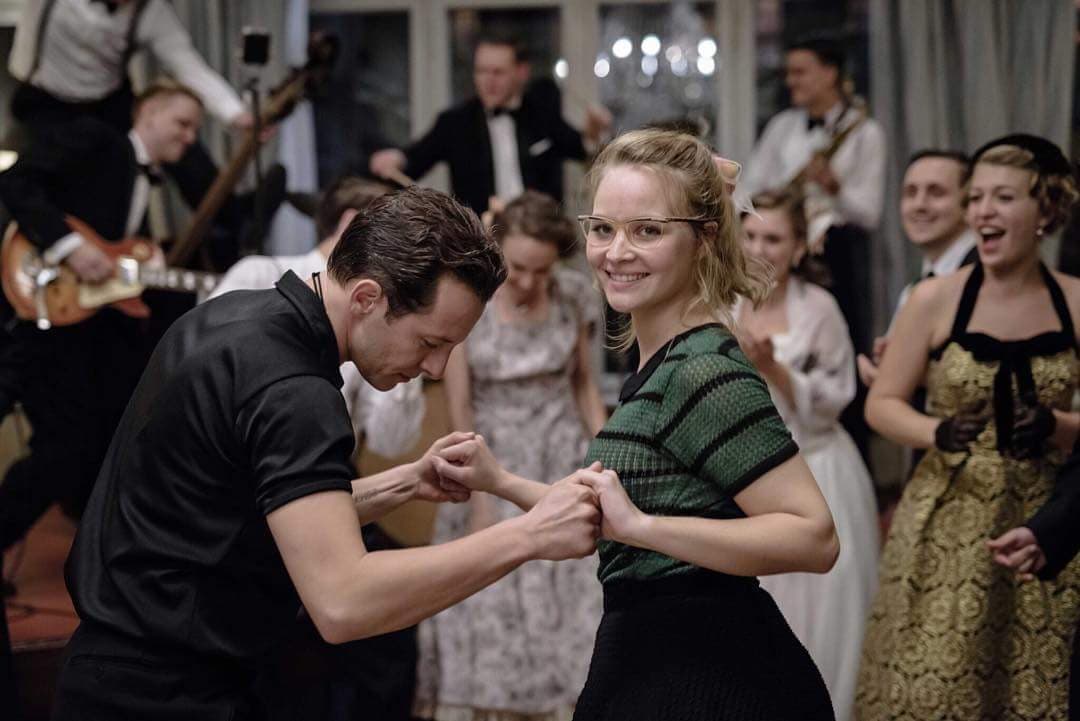
Monika – Berlin 56
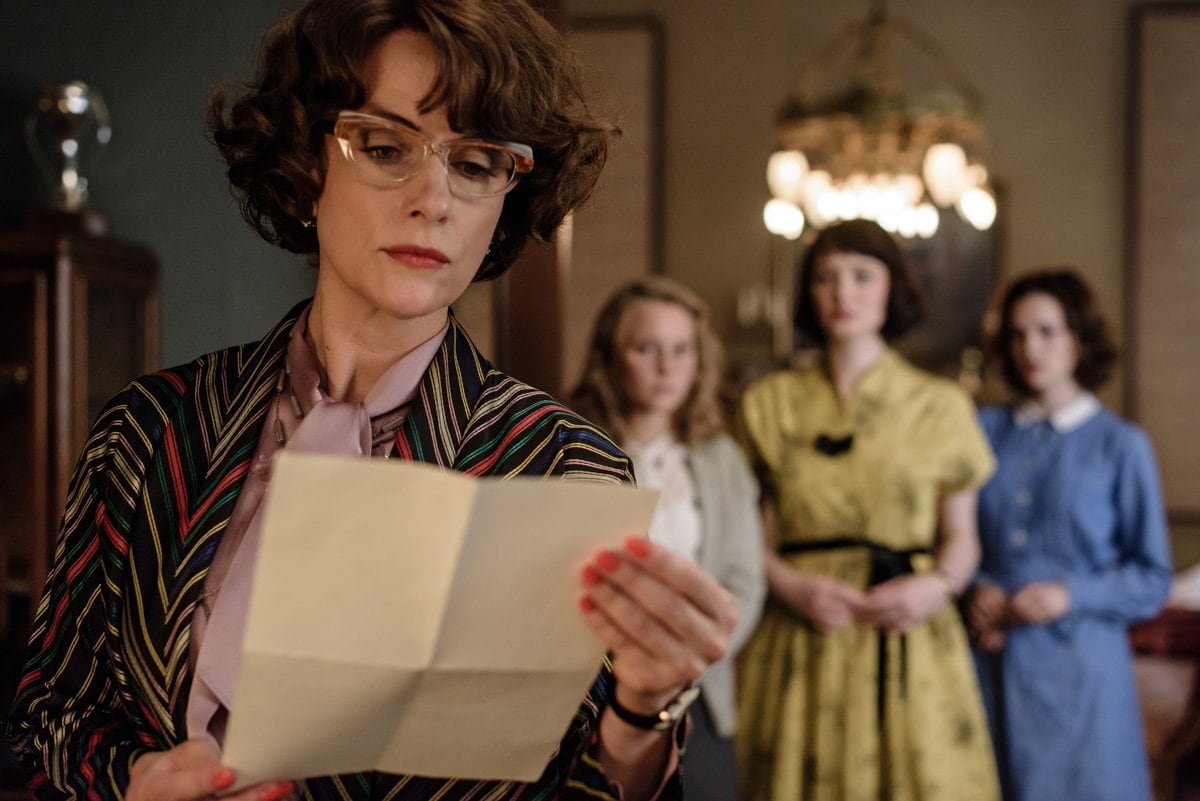
Caterina – Berlin 56
Has the show been broadcasted in France ?
This was not our choice, but one of our distributors offered the show to Arte (a French-German television channel, NDLR). It’s a good one, and it was broadcasted in April. What is new about this is the format is that Arte made six episodes of 45 minutes instead of the three episodes of 90 minutes which were initially planned. I heard Berlin 56 has been quite successful in France, but I don’t have the exact numbers in mind. In Germany it was a real success, especially on TV with about 6.2 million viewers per episode. What was fascinating was that we had over a million people watching the episodes online as well.
So it’s really a social phenomenon !
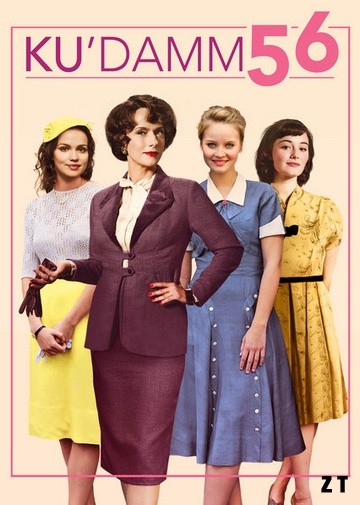
Berlin 56
I wouldn’t call it a phenomenon but rather a big success. Everyone was happy to have something like that because it’s a positive show. It’s not dealing with World War II or having all these purposes that all the Germans know perfectly about. It was something different by grabbing also a younger audience who already knew the actors. They can identify themselves to the members of this family. If you try to emancipate from your family, if you try to have your own will, find your way in life and get a purpose. It grabs people of all ages. We don’t want to point to this or that kind of woman. I think that every kind of woman will see something in the series where she’s like, “either I want to be like that” or “I lived through something like that.” So if you take Monika or Helga or even Katarina, you will always have something as a woman where you totally understand why she decides to go that way. So it’s not really targeting a specific type, but anyone who is feeling what these women are feeling.
I think that every kind of woman will see something in the series where she’s like, “either I want to be like that” or “I lived through something like that.”
Have you been to War On Screen before?
This is the first time War On Screen has featured TV series. Since I’m producing TV series and mini-series, I haven’t had the opportunity to come before, and I hadn’t heard about the festival. We were approached two months ago by the team in La Rochelle, where we won the prize of the best series. I was asked if I wanted to present the series, so with the director (Sven Bohse, NDLR) we decided to do it.
Are you looking forward to seeing the audience tonight watching your series?
We’re probably going to be in there especially because – true fact – we’ve never watched the series. I saw the whole material but I don’t know exactly where episode one ends. We didn’t do the editing of the series, so we have to be in there to find out. And of course it’s always fascinating to see people react to what’s happening as well. We want the audience to understand why 1956 in Germany is still so special and why we focused that much on women.
Is there a sequel to the series?
In three hours, it will be exactly one week. We’ve finished filming season 2. It’s the same family, it’s the same place, it’s again in Berlin, but it’s the year 59. We’re giving life to the whole family, we’re just going to continue their stories.
Picture credits:
- Marc Lepetit: https://intern.zhdk.ch/?11305,
- Character of Berlin 56: http://www.bozar.be/fr/activities/121330-ku-damm-56,
- Monika – Berlin 56: https://www.pinterest.fr/pin/336221928415544479/,
- Caterina – Berlin 56 : https://twitter.com/mariebarraco,
- Berlin 56: http://www.kleoinparis.com/2017/04/berlin-56/



